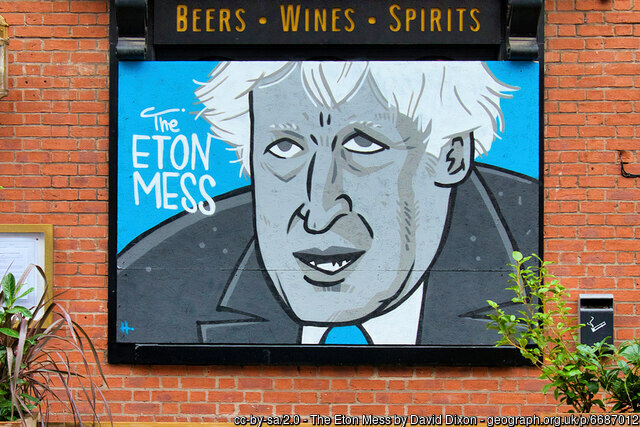Our PhD student, Jo Rothery, considers the fallout from the resignation of Boris Johnson
It has been a remarkable few days in politics that has potentially left the UK in constitutional chaos due to its reliance on convention rather than a codified constitution. On Tuesday 5th July, both Boris Johnson’s Chancellor (Rishi Sunak) and Health Secretary (Sajid Javid) stood down. There followed a landslide of resignations from minsters, holding posts at all levels of government, leaving the state unable to function effectively. The catalyst for this was Johnson’s handling of the scandal around Chris Pincher, his deputy chief whip. Johnson appointed Pincher despite knowing that a formal complaint around “inappropriate behaviour” had been made against him. The Prime Minister had also previously stated he was unaware of the complaint.
A number of events led to this pivotal moment. One was Johnson’s handling and subsequent U turn over the Owen Paterson case in November 2021. Another was the belief that the Prime Minister had lied over Partygate, with 8 out of 10 of the electorate thinking this was the case, including 51% of Conservative supporters. Not only did Conservative MPs doubt his integrity therefore, but also the public. In one recent poll, Labour were 10% ahead of the Conservatives, whilst Johnson’s personal ratings had dropped to -44, compared to Sir Keir Starmer’s which were at 0.
In the general election of 2019, it was the more unconventional side to Johnson’s character that made him appealing to voters. He presented himself as an outsider who was not part of the established elite and would lead in an alternative way. Johnson also reassured voters in 2019 that he could end the constitutional paralysis concerning Brexit that had seized parliament. His populist politics were based on upholding the will of the people after a slim majority voted to leave the EU in 2016. He promised to “Get Brexit Done” which gave the Conservatives an 80-seat majority in parliament.
Johnson believed he had a mandate from the people and this was why he did not initially stand down as Prime Minister, despite the many resignations handed in by the evening of the 6th July. There were 59 in total, more than any other Prime Minister in modern history, their effect crystalised by the fact they came over a 48 hour period. Johnson’s style of leadership and controversial personality had become too extreme for MPs within the Conservative party. Furthermore, he was no longer viewed as an electoral asset. The number of resignations meant that departments of state were left unable to function creating constitutional chaos. Johnson also declined to resign despite being urged to by some in his cabinet, even talking of calling a snap general election, moving the UK further towards a constitutional crisis.
This highlights Johnson’s populist style of leadership but also its presidential character, a style of governance acknowledged to have grown in recent years. Constitutionally, the Prime Minister is accountable to parliament and the public and traditionally is chosen by the monarch as the head of the party that has a majority in parliament . So, although the Prime Minister is responsible to the public, they are leader of the country due to party support, who ensure they can govern effectively through their backing in parliament. Johnson’s actions and words, however, have shown little acknowledgement of this constitutional process. His resignation speech at Downing Street focused on the public and their interests, which he had promised to serve. He gave this as the reason for delaying his resignation and explained it was why he tried to persuade his colleagues that he should remain in post. Johnson also described the Conservative party as having a herd mentality, seemingly apportioning the blame for his demise on them. Both these things suggest he saw himself in a presidential role, with little loyalty to the party.
The events of the past two days now raise a number of questions over the immediate future of the UK. The Conservative party will have to vote for a new leader which may take some time and could become very divisive. With the cost-of-living crisis mounting and issues regarding Brexit (especially in Northern Ireland) salient at the moment, people may not feel confident that the governing party is able to focus on these pressing matters. Moreover, Johnson has stated he wishes to remain as the caretaker Prime Minister until the Conservative Party conference when a new leader is chosen. This means he should not instigate any major policies and would only be responsible for making sure the machinery of government ran smoothly. There are many, including those within the Conservative party however, who do not trust him to do this. As a consequence, Keir Starmer has stated he will call for a vote of no confidence in Johnson if he remains in post. Will Johnson, who has broken rules in the past, be able to stick to the remits of the care taker Prime Minister role?
There is a real irony in the fact that he was elected on a promise to end the constitutional chaos of Brexit but has now, because of the lack of a codified constitution in the UK and reliance on convention, created a possible constitutional crisis with his departure.
 Politics
Politics Laura Cashman
Laura Cashman 1565
1565


